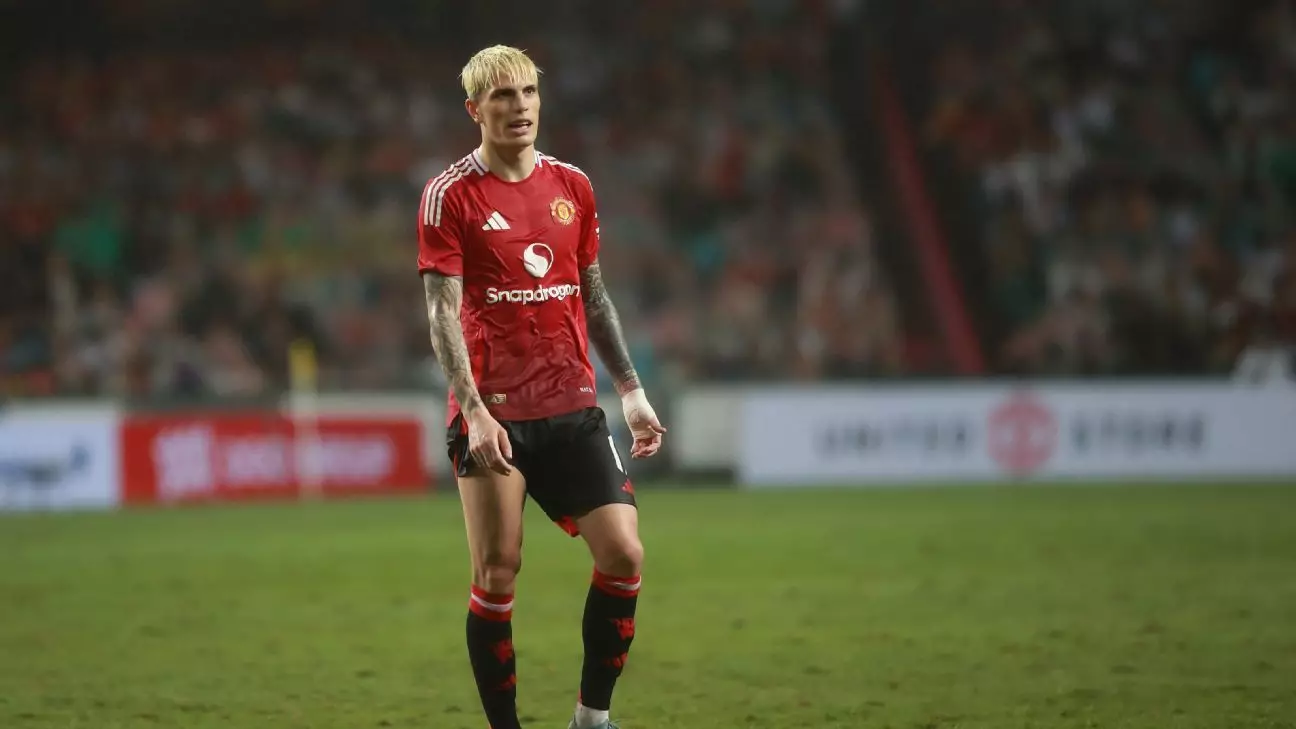Manchester United currently finds itself at a pivotal juncture, not merely because of transfer rumors or squad reshuffles, but due to an evolving philosophy on how to handle player dynamics amidst fluctuating team needs. Ruben Amorim’s candid stance on reintegrating players like Alejandro Garnacho exemplifies a progressive mindset that values flexibility, patience, and the recognition that talent can flourish in multiple contexts. Instead of rigidly pushing players out or rushing to replacements, this approach emphasizes the importance of nurturing internal competition and giving players space to adapt, grow, or reconsider their career paths within the club’s ecosystem.
This philosophy signifies a shift from traditional fan-favorite narratives that often revolve around immediate results to a more nuanced understanding of team development. Amorim’s willingness to hold space for players who are currently sidelined—be it Garnacho, Antony, Sancho, or Malacia—reflects an acknowledgment that every player’s trajectory is unique. It’s about fostering an environment where talent can be re-evaluated, and opportunities can emerge organically, thus maintaining a healthy competitive spirit without burning bridges prematurely.
The Power of Strategic Flexibility and Player Autonomy
Amorim’s remarks highlight an acute awareness of the complex realities of modern football transfers. The decision not to force players out but instead keep the door open for their return underscores a strategic patience that many elite clubs are beginning to adopt. It shows a recognition that the transfer market can be unpredictable, and rigid policies might backfire if intended deals fall through at the last minute.
By stating that players who don’t fetch a suitable offer will remain at Manchester United, Amorim subtly asserts the club’s control over its squad composition without entirely micromanaging individual ambitions. This highlights an understanding that player agency matters. Allowing Garnacho and others to consider options or wait for the right scenario maintains morale and respects their personal goals—factors crucial for long-term club loyalty and internal harmony.
Equally important is Amorim’s acknowledgment that some players seek new challenges—an honest reflection of modern athletes’ aspirations. Rather than dismissing these desires, he positions such moves as part of an open dialogue, reinforcing an environment where player motivation and career development are prioritized alongside team stability. This philosophy promotes a culture where players are trusted to make decisions about their future, provided the club’s strategic needs are considered.
Balancing Ambition with Practicality in Squad Building
Amorim’s comments about the ongoing search for a striker, amid the uncertainty surrounding the team’s attacking options, reveal a pragmatic attitude. While the club remains linked to potential signings like Ollie Watkins, the coach openly admits he is comfortable starting the season with the current squad if necessary. This demonstrates a confidence in the existing talent pool—particularly in developing players like Rasmus Hojlund and Josh Zirkzee—and a reliance on internal competition to ultimately determine the best options.
This approach suggests that success isn’t measured solely by splurging on marquee signings but by cultivating a cohesive unit capable of adapting to various tactical demands. Amorim’s emphasis on improving connections among current players indicates a belief in potential rather than just proven star power. He recognizes that the right environment and strategic development can elevate the capabilities of younger or less established players, turning perceived squad gaps into opportunities for growth.
By choosing to be “happy” with the current squad, Amorim reflects a mindset that values sustainability and confidence in the players’ collective resilience. This doesn’t mean complacency but an understanding that patience and strategic internal development can sometimes outperform rapid, expensive transfers. Such a stance can foster a stronger team culture rooted in shared purpose and mutual belief.
While the headlines often focus on transfers, player outgoings, or marquee signings, Amorim’s statements reveal a deeper philosophy—one centered on human potential, strategic patience, and internal growth. Manchester United, under his guidance, seems to be embracing an approach that seeks stability through flexibility, trusting in the talent already within its ranks, and carefully managing ambitions for both individual players and the club’s collective future.
This approach challenges traditional notions of instant success or rigid squad construction, advocating instead for a holistic view that balances short-term needs with long-term development. As the season approaches, the true test will be whether this mindset translates into tangible results on the pitch, but at its core, it signals a more mature and forward-thinking chapter for Manchester United.

